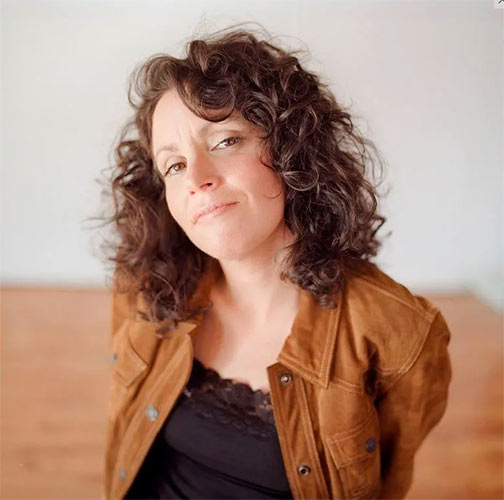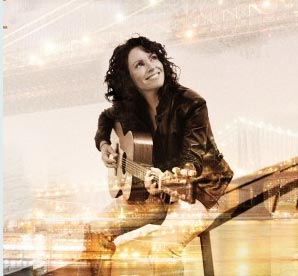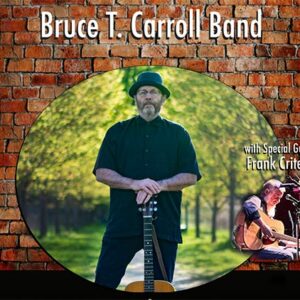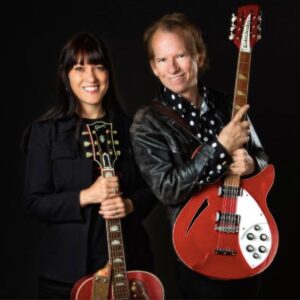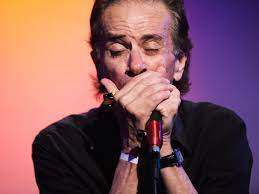Description
PLEASE READ BEFORE ORDERING TICKETS–There will be NO FOOD SERVICE at all at this Concert. If you want to eat please arrive 70 minutes before show time, Go Upstairs order your food, Sit down upstairs and enjoy. BUT, one of your party please come down at 3pm and pick out your seats! Then go back up and enjoy your meal. There will be NO service on the floor. YOU CAN ORDER Drinks at the BAR, before the show and during a brief intermission! As always there is no minimum!
Doors open at 3pm concert time is 4:00. Tickets are NOT MAILED , all tickets are WILL CALL ( on a list ) at the door. There is a 6% handling included in the ticket price.
Lucy Kaplansky was at a career crossroads back in the early-1990’s. At the time, she was a staff psychologist treating mentally ill adults at a New York state hospital and had also established a private practice. She was simultaneously a burgeoning singer-songwriter performing locally in thriving New York City clubs with designs on transitioning to being a full-time musician. A risky move, indeed, but plunging ahead was a choice that propelled Kaplansky forward with no regrets.
Kaplansky, who has a PhD in Clinical Psychology from Yeshiva University, had been hanging out and collaborating with the like-minded Richard Shindell, Suzanne Vega, Nanci Griffith, and Shawn Colvin, among others. It was Colvin, in fact, who offered to produce Kaplanskly’s debut, The Tide, which was released on Red House Records in 1994. Six months later, she signed a contract with booking agency Fleming Artists and was on her way.
Kaplansky went on to flourish over the next 30 years with her folk music-based career. The enduring singer-songwriter-guitarist has released over a dozen albums supplemented by regular touring and a loyal fan base, with two upcoming Bay Area shows later this week at Freight & Salvage in Berkeley and the Hopmonk Tavern in Novato.
Still, how tough at the time was that career-altering decision for her to make?
“I had really wanted to sing full-time, so it was not an if but a when would I take that leap of faith,” recalled Kaplansky during a recent phone interview. “At that point, I had been working both (professions) for years and it was not an easy decision but once I made it, I never looked back. It was the right thing to do.”
Kaplansky draws from personal experiences for her lyrical subject matter, focusing on the often complex matters of the heart. Universal themes of loss, longing and loneliness, as well as love, joy, friendship and hope, are all propelled musically by roots-based instruments including acoustic guitars, mandolin, piano, percussion, and the occasional electric guitar. What Kaplansky seeks to capture and share in her songs are emotional truths, as she puts it, “When I listen to music, or even read something, it has to ring true to me in some deep way. I’m striving for that in my writing.”
Kaplansky’s latest independent release, Last Days of Summer, was created during the COVID pandemic and offers a mix of both the personal and political. The material ranges from the title track, a bittersweet, coming of age story song inspired by Kaplansky’s daughter, Molly, who was about to leave home for college; to the more socially-conscious “Mary’s Window,” which tackles the separatist mood, isolation, and finger-pointing that came to define the political climate during our previous presidential administration. For a sample of Kaplansky’s sound and style while performing “Mary’s Window,” go to: https://www.youtube.com/watch?v=8VgCmQCG_bw
“I can’t plan or create a topic, I usually need to be moved by something,” Kaplansky revealed about her organic songwriting process. “It’s more like, let’s see where this line takes me, and then it can change direction if that feels right, maybe to a different tone or timbre mid-stream. I let the song lead me rather than following a plan of my own.”
As far as her business model, that’s a different story because Kaplansky does have a plan and she’s sticking to it. While digital streaming platforms, such as ITunes and Spotify, now dominate the music-buying industry, the royalties paid to the musicians—the actual creators of the art—are undeniably meager. [For every digital album sold on ITunes for $9.98, the artist receives only 94 cents, which is less than a 10 percent cut. The rest goes to the record label ($5.35) and Apple ($3.70).] Rather than participate in this lunacy, Kaplansky has been selling her music only on her website and at her live shows since 2015’s duo recording with Richard Shindell titled Tomorrow You’re Going.
How’s that been working out for her?
“There’s a lot to say about this but royalties are basically non-existent and it’s just not going to work for us as artists,” insists Kaplansky. “I had this flash of insight while out walking the dog, where I thought to myself, ‘What if I don’t put my music on the streaming services, then what?’ Well, I’ve sold a lot of my last few albums doing this. It works for me and honestly, it’s a lot more fun.”
With the exception of playing a few band gigs near her home base on the east coast, Kaplansky is touring primarily as a solo act these days as a result of economic necessity. But it’s not such a bad thing.
“Touring with a band is not feasible for people like myself,” she said, “because there’s just not enough income (generated) to make a living doing that. I do have complete freedom playing solo, though, and don’t have to worry about anyone else onstage. It is a powerful thing to do the solo shows and make it financially feasible.”
So, circling back to her doctorate in Clinical Psychology and her private practice, I asked Dr. Kaplansky if that education and experience have given her a unique understanding of the human condition that perhaps informs her story songs with such vivid character sketches?
“The way I look at this is that my training has made me insightful, wise, and informed in general—particularly about personal conflicts and motivations—but I don’t really see a direct line (to my songwriting,) although it certainly does affect my world-view,” answered Kaplansky. “Some of it likely seeps in subconsciously. Still, there’s so much for all of us to absorb from our everyday lives if you’re open-minded and curious.”

